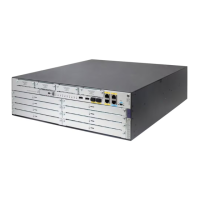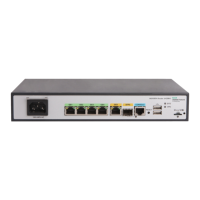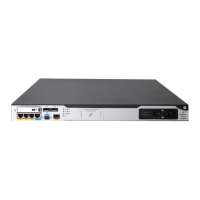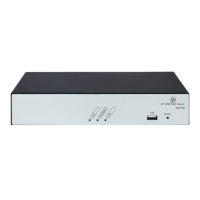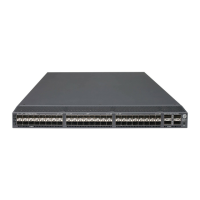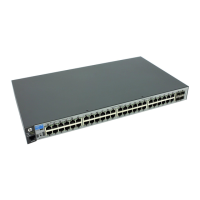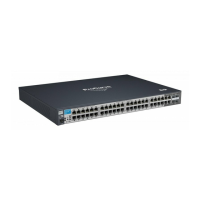204
• Multicast address—An identifier for a set of interfaces (typically belonging to different nodes),
similar to an IPv4 multicast address. A packet sent to a multicast address is delivered to all
interfaces identified by that address.
Broadcast addresses are replaced by multicast addresses in IPv6.
• Anycast address—An identifier for a set of interfaces (typically belonging to different nodes). A
packet sent to an anycast address is delivered to the nearest interface among the interfaces
identified by that address. The nearest interface is chosen according to the routing protocol's
measure of distance.
The type of an IPv6 address is designated by the first several bits, called the format prefix.
Table 7 Mappings between address types and format prefixes
Type Format prefix (binary) IPv6 prefix ID
Unicast
address
Unspecified address 00...0 (128 bits) ::/128
Loopback address 00...1 (128 bits) ::1/128
Link-local address 1111111010 FE80::/10
Global unicast address Other forms N/A
Multicast address 11111111 FF00::/8
Anycast address
Anycast addresses use the unicast address space and have the
identical structure of unicast addresses.
Unicast addresses
Unicast addresses include global unicast addresses, link-local unicast addresses, the loopback
address, and the unspecified address.
• Global unicast addresses—Equivalent to public IPv4 addresses, global unicast addresses
are provided for Internet service providers. This type of address allows for prefix aggregation to
restrict the number of global routing entries.
• Link-local addresses—Used for communication among link-local nodes for neighbor
discovery and stateless autoconfiguration. Packets with link-local source or destination
addresses are not forwarded to other links.
• A loopback address—0:0:0:0:0:0:0:1 (or ::1). It has the same function as the loopback
address in IPv4. It cannot be assigned to any physical interface. A node uses this address to
send an IPv6 packet to itself.
• An unspecified address—0:0:0:0:0:0:0:0 (or ::). It cannot be assigned to any node. Before
acquiring a valid IPv6 address, a node fills this address in the source address field of IPv6
packets. The unspecified address cannot be used as a destination IPv6 address.
Multicast addresses
IPv6 multicast addresses listed in Table 8 are reserved for special purposes.
Table 8 Reserved IPv6 multicast addresses
Address Application
FF01::1 Node-local scope all-nodes multicast address.
FF02::1 Link-local scope all-nodes multicast address.
FF01::2 Node-local scope all-routers multicast address.
FF02::2 Link-local scope all-routers multicast address.
Multicast addresses also include solicited-node addresses. A node uses a solicited-node multicast
address to acquire the link-layer address of a neighboring node on the same link and to detect
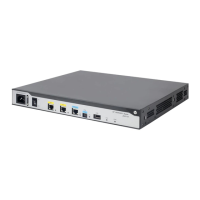
